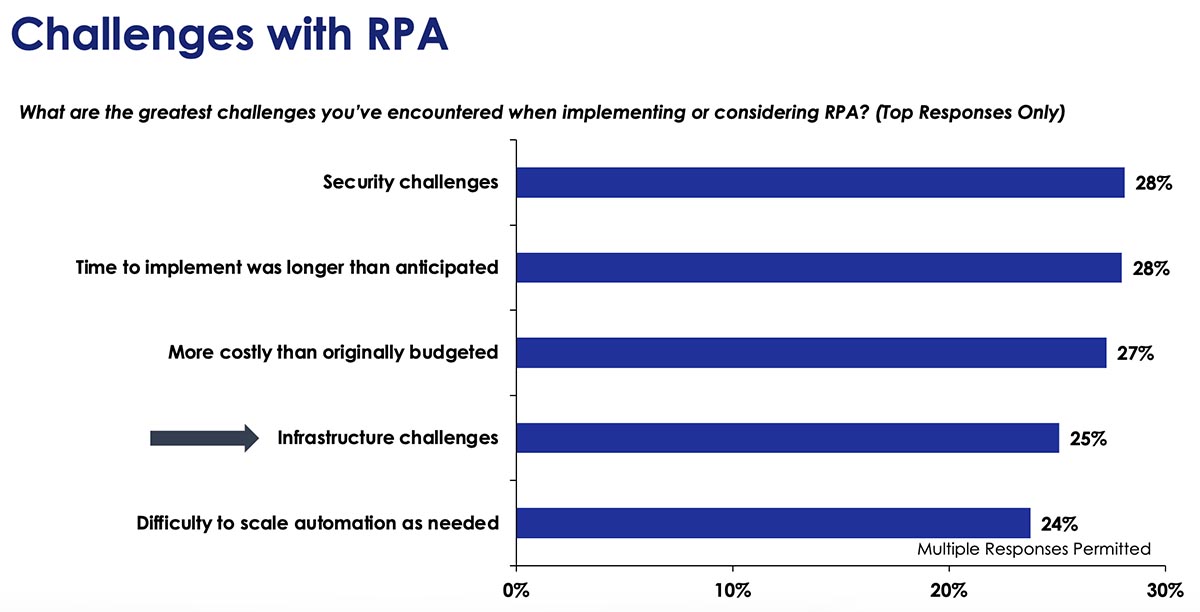- Many of today’s businesses are struggling with data that is nowhere near ready for AI.
- Solutions providers can play a crucial role in helping organizations embark on their AI journey, but the process is not always straightforward.
- Keypoint Intelligence’s research uncovers an urgent need to prioritize data management and address the issues posed by unstructured data.
By Anne Valaitis
Introduction
It’s hard to go anywhere these days without hearing something about artificial intelligence (AI) and how it might change our world. Will its effects be beneficial or detrimental? Does it threaten our jobs, or is it more likely to increase our productivity so we can work smarter instead of harder? Before you decide to jump on the AI bandwagon, it’s a good idea to take a step back and think about your company’s data. Is it clean, well-organized, and ready to fuel the AI engine? Just like a top chef needs the best ingredients to prepare a Michelin-star meal, AI needs high-quality, structured data to reach its full potential.
The Data Problem
The sad reality is that many of today’s businesses are struggling with data that is nowhere near ready for AI. Instead of consistently formatted, error-free, and easily accessible information, there are data siloes, ancient legacy systems, sloppy data entry, and a serious lack of data governance. It’s no wonder that so much data ends up isolated, difficult to find, and a nightmare to work with. According to Keypoint Intelligence’s recent multi-client study on automation, infrastructure challenges were among the top five roadblocks when implementing robotic process automation (RPA). If that doesn’t scream “data management issues,” I don’t know what does.
Figure 1: Challenges with Robotic Process Automation

N = 825 Total Respondents
Source: Robotic Process Automation Multi-Client Study: Keypoint Intelligence 2023
For organizations that are hoping to implement AI, the state of their data can be a major headache. They will typically start out being excited about the possibilities but might then falter when they realize that their data is all over the place. Suddenly, they’re faced with the daunting task of cleaning, integrating, and maintaining their data. Returning to our metaphor above, this is like trying to cook a gourmet meal when the required ingredients are scattered across different kitchens—which is not exactly a recipe for success.
The Solution Provider’s Perspective
As a solutions provider, you can play a crucial role in helping organizations embark on their AI journey. Unfortunately, this is not always a straightforward process. You will frequently encounter clients whose data is inconsistent, incomplete, or poorly organized. It then falls on your shoulders to whip their data into shape and educating them on the importance of maintaining high-quality data. There’s no question that this is a demanding task, but it's essential for the success of any AI implementation.
These challenges can be tackled head-on by:
- Getting your data governance game on-point
- Investing in some slick data integration tools and platforms
- Automating your data entry and processing tasks
- Keeping a watchful eye on your data quality and constantly improving it
- Becoming a qualified solutions provider…or finding an experienced partner to help you out
Keypoint Intelligence’s same study reveals some fascinating statistics that underscore the magnitude of the data challenge. For example, over 90% of respondents reported that at least a quarter of their business data was unstructured. In addition, about 40% of respondents admitted that over half of their data lacked proper organization. These findings serve as a powerful reminder of the urgent need to prioritize data management and address the issues posed by unstructured data.
The Bottom Line
Clean, organized data is the foundation of successful AI implementations. Without it, even the most advanced AI technologies will struggle to deliver the desired results. The significant amount of unstructured data in organizations, as highlighted by our research, emphasizes the critical importance of addressing data management practices and getting your data in order.
To overcome these obstacles, organizations must invest in the right strategies and partnerships. Take a long, hard look at your current data situation, figure out where you can improve, and then develop a game plan. Finally, don’t be afraid to call in the big guns—experienced solutions providers really know their stuff and will have the tools to help you get the job done!
As Principal Analyst for Keypoint Intelligence’s AI Service, Anne Valaitis draws on her extensive document management and artificial intelligence expertise to help clients identify opportunities where AI can streamline operations, reduce costs, and shape new offerings. She has led numerous research projects that have influenced today's document solutions landscape.














